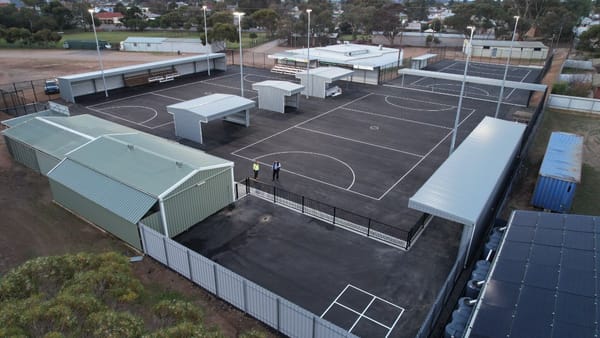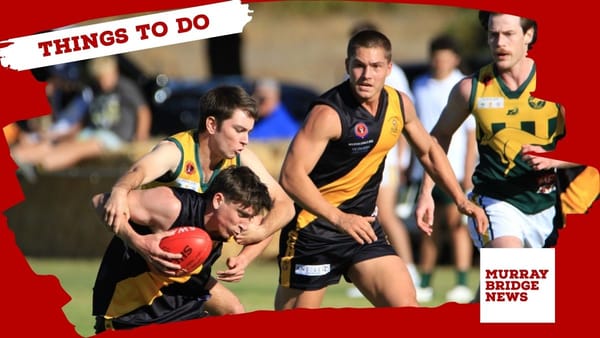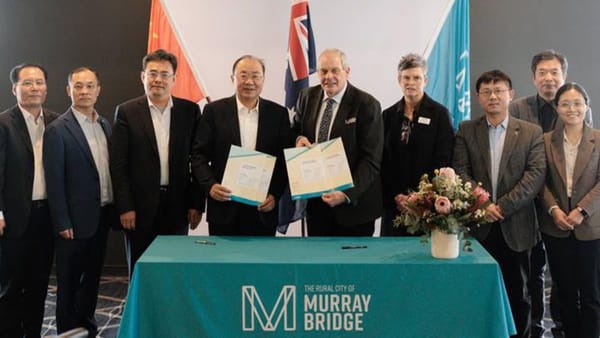Women of the LMRIA: Meet Long Flat's Alex Westlake
She has a passion for music and traveling but she was always drawn back to the flats.
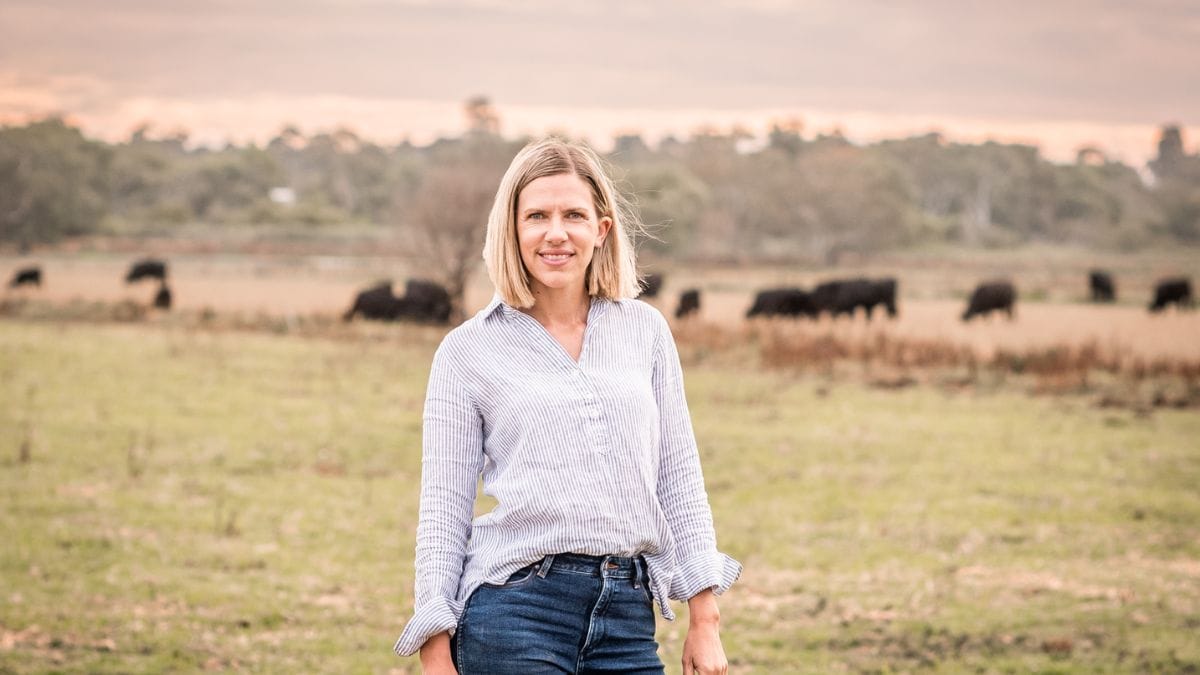
This post was contributed by Ellie Rankin.
The Lower Murray Reclaimed Irrigation Area (LMRIA) spans a stretch from Mannum to Wellington where you’ll find a mix of farming, including cropping, dairy, hay production and livestock.
In 2022, when the River Murray floods hit, farmers were confronted with difficult decisions: selling off their livestock, relocating them to higher ground, or arranging for agistment elsewhere, while watching their crops be destroyed by the rising water.
In the wake of these challenges, the women of the LMRIA came together and created a group to give each other support, all connected by their ties to farming along the Murray River.
Among them is Alex Westlake.
She and her husband Mark farm alongside her parents growing cattle, sheep and irrigated hay at Long Flat.
Can you tell me a bit about yourself, your background and where you grew up?
I was born and bred in Long Flat, just outside of Murray Bridge, in the summer of 1987, after my parents moved from the Adelaide Hills.
At that time it was a bustling dairy region with 120 dairy farms from Mannum to Wellington.
Looking back, I certainly took my childhood for granted.
I remember asking my parents "can we go and live in town?"
I didn't know just how good I had it!
Even though my childhood was in relatively modern times, I did experience old-fashioned free play: roaming Long Flat without a care, visiting neighbours, feeding calves and milking cows, riding on the back of the ute and the feed-out cart.
I was one of the lucky ones.
There was nothing like the flats, the flood and highland irrigation, the masses of black and white cows and the messy dirt roads.
We really had a large, vibrant community of like-minded people when I grew up.
Sadly, the ugly combination of a poorly timed government irrigation rehabilitation project and the millennium drought in the early 2000s was to the demise of our region.
We are still reeling from the fallout today, with many families leaving farming and the region.
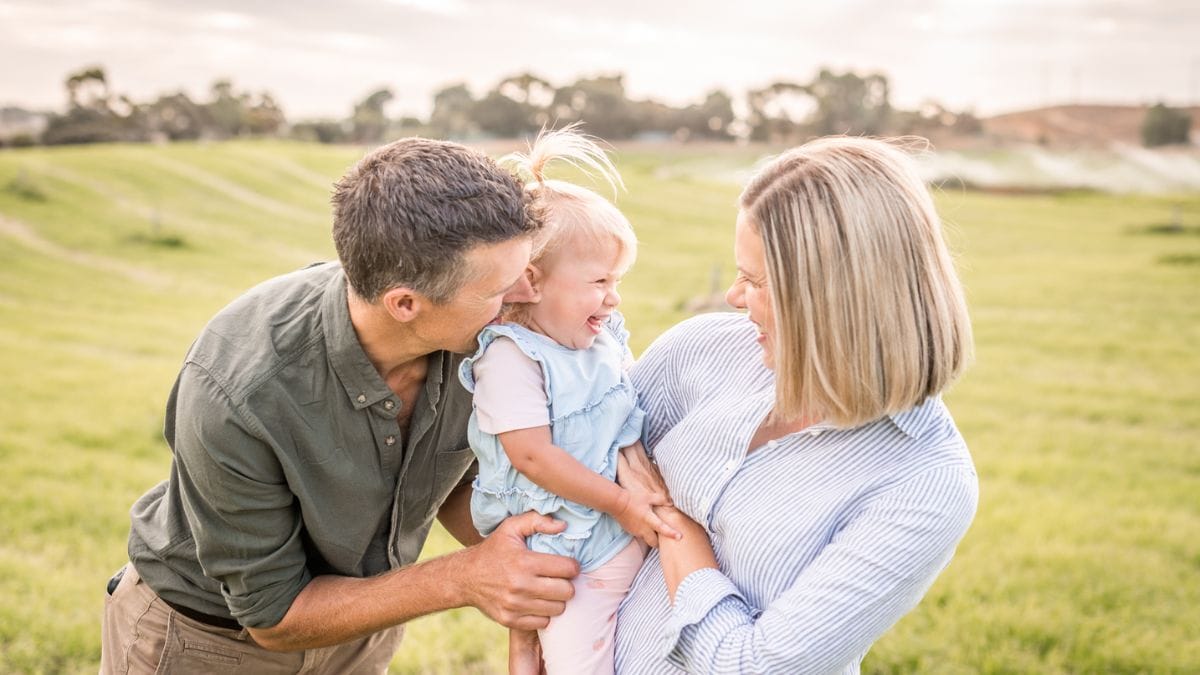
What led you to your current path?
Once I finished my high schooling in Murray Bridge, I was keen to pursue a career in music.
I studied music education at the Elder Conservatorium; at this time I met my now husband, Mark Westlake.
Mark was originally from Victoria and our common interests and desire to travel cemented our relationship.
For the first five years of our marriage, we worked and travelled around Australia.
These were wonderful days but nearing the end of this time we had decided to find a "home" to settle for a while.
We just didn't expect that my original home would be the one we were looking for!
Soon after returning to Long Flat, we purchased a highland block from my parents who had retired from dairy farming and we built a home.
We then went about establishing a merino sheep flock from scratch.
We currently run 1000 dual purpose merino ewes, some Angus beef, as well as producing premium irrigated fodder and horse hay, including a specialised variety known as Katambora Rhodes Grass – a low-sugar hay and the only one of its kind grown in South Australia.
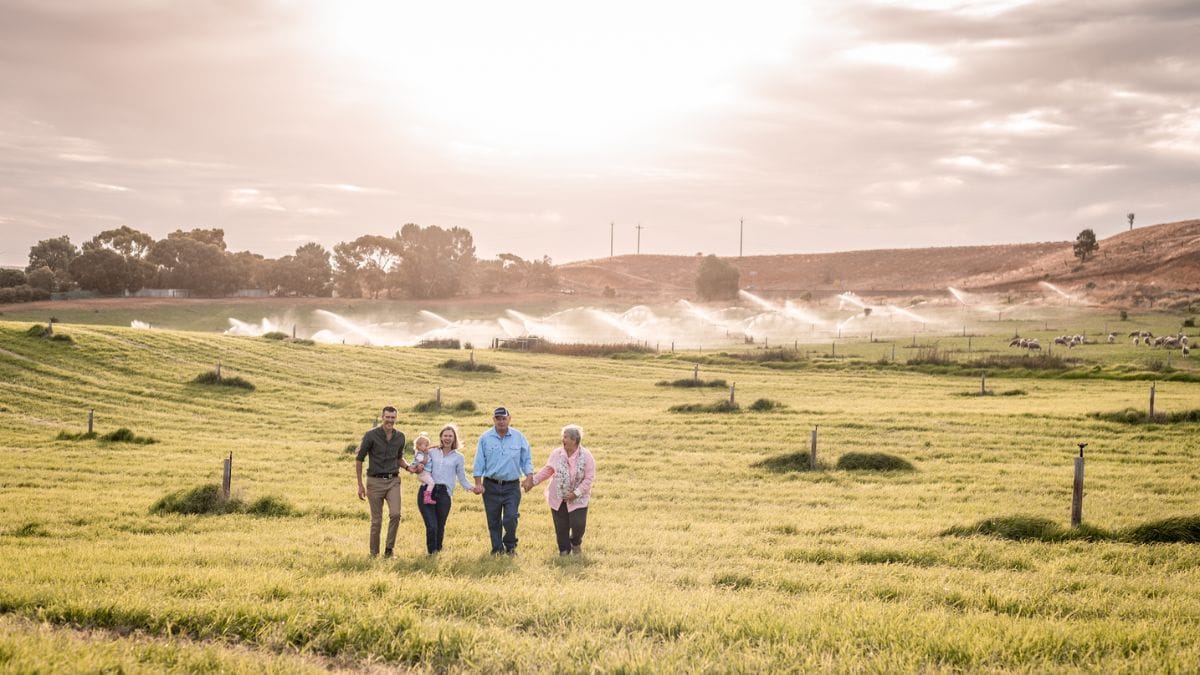
How do you handle stress or difficult times in your life? What have you overcome?
As a Christian family, we rely on the strength and hope that comes from our faith, and this is mostly what we use to get through stress and difficult times.
Farming as a multi-generational family unit is also a key aspect of our ability to thrive and overcome.
The greatest challenge I have faced so far is the 22-23 Murray River flood.
On the 7th of January, 2023, the Long Flat levee breached and our farm was completely inundated with three metres of water.
Thankfully our livestock were safe, as we had fully prepared.
However, we weren't prepared for the isolation that a slow-moving flood brings.
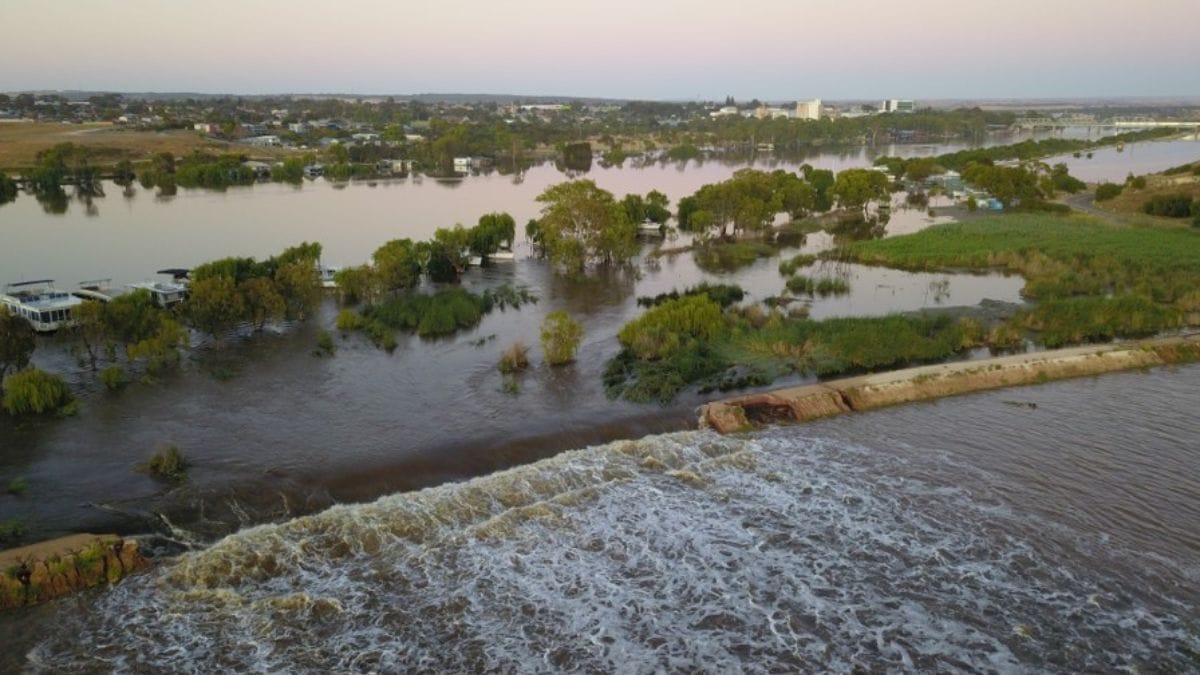
We were forced to send our entire flock: over 2000 ewes and lambs on agistment for six months while the lake that once was our farm required pumping off.
Our pastures and fences were completely destroyed and we have had to start again.
We were first-time parents with our daughter only days old when we started preparing for the flood.
At the same time Mark's dad found out he was dying from brain cancer, from which he has since sadly passed away.
It was a heavy, emotional burden not being able to support him and his family back in Victoria.
We were held ransom to our own plight back home on the farm.
These are the unspoken afflictions of a natural disaster.
Life does not stop for any flood, fire or drought.
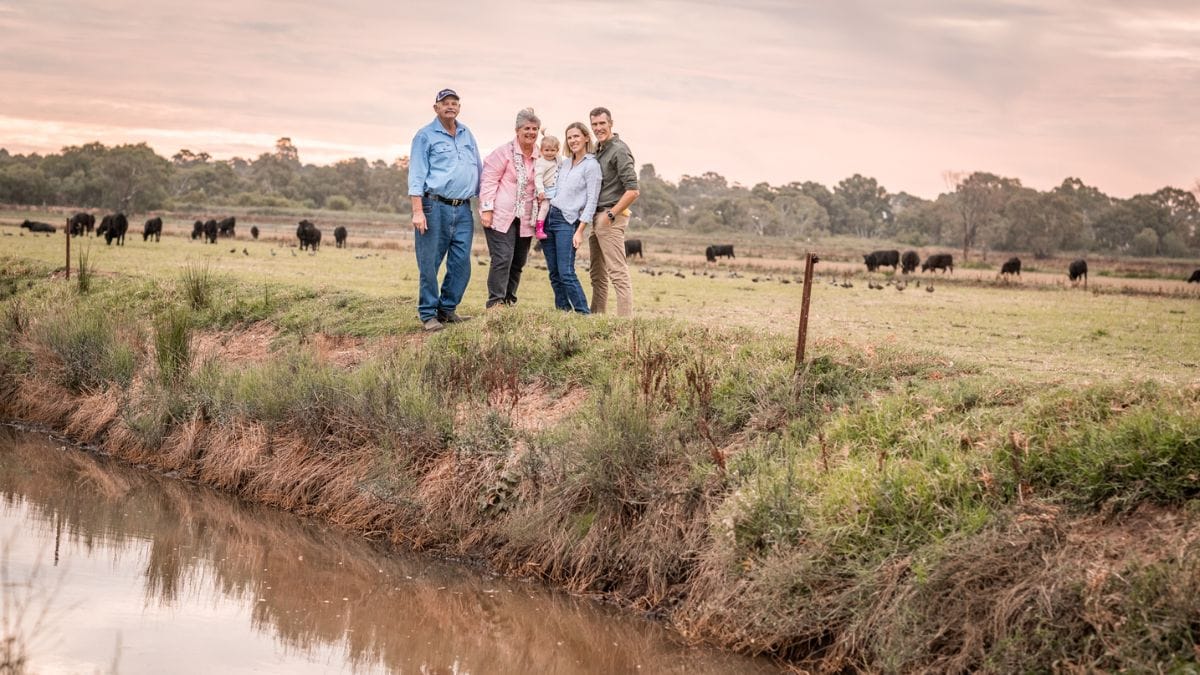
Barry and Joanne Pfeiffer join Zipporah, Alex and Mark on the farm. Photo: Ellie Jade Photography.
Can you share a memorable moment or achievement in your journey that has been particularly meaningful to you?
During our travels around Australia, we based ourselves in the East Kimberley region of Western Australia.
Living and working there we experienced the best this country has to offer in regards to it being the last frontier of the Australian outback.
However, all the while I was there, the sounds, smells and atmosphere of the rivers and land was very reminiscent for me.
It reminded me of being down on the flats on our farm, especially in summer and autumn.
I guess that is what water does.
It provides the environment for things to flourish.
The LMRIA is scientifically claimed with some of the best soils in Australia and, when accompanied with water, there is guaranteed productivity.
As caretakers of the land we are able to support the environment to flush salts, and acid sulphates, maintaining a workable balance.
The LMRIA also holds similarities to that of the Ord River Irrigation Scheme around Kununurra, in particular the highly sustainable gravity-fed irrigation system.
We chose to give farming a go at Long Flat inspired by the hard work and dedication of my parents, and we also recognised that the LMRIA region is worthy of investment.
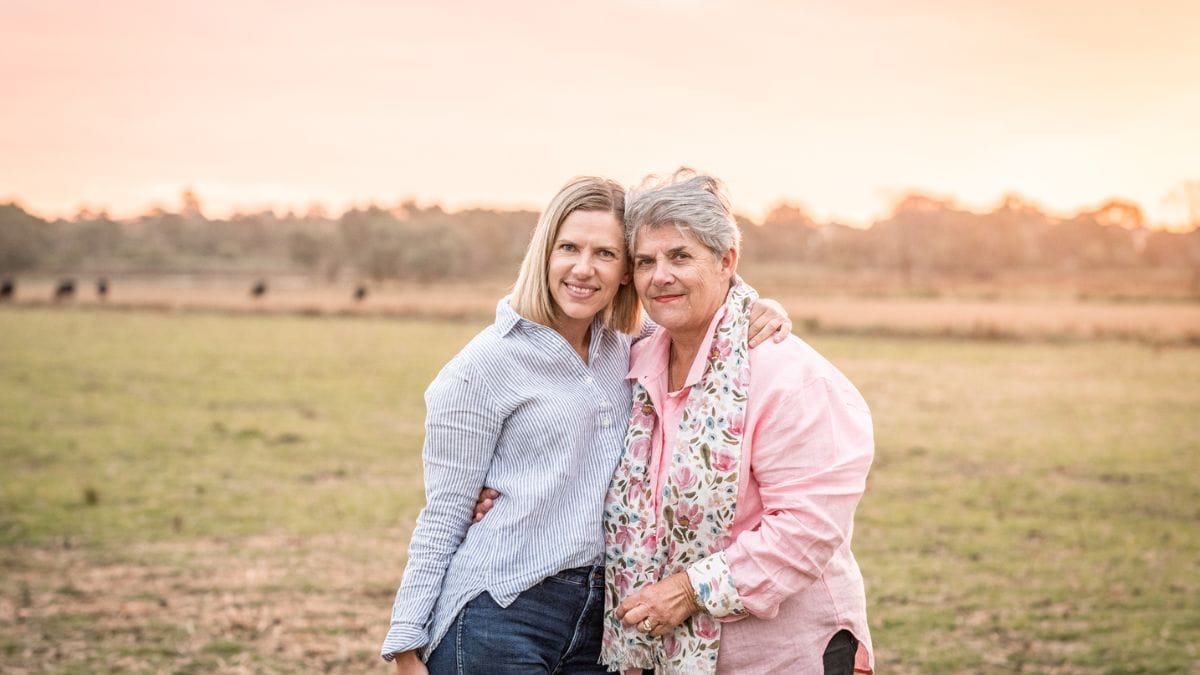
What is your favourite thing about being a rural woman?
The privileges to problem solve and the many opportunities rural life brings.
Growing up I was surrounded by strong women.
My mother is and both my grandmothers were strong and capable women.
I was influenced by their ability to run the house, tend to children, work outside, milk the cows daily, run the books, contribute to community, and the list goes on.
Incredible really.
From my observation most women of the LMRIA are like this.
As a new mother, I now have the opportunity to help shape our daughter's capacity to be brave and courageous as well as being mindful of her environment and community.
What are your perspectives regarding the involvement of women in the rural industry?
The pendulum is shifting; some agricultural industries faster than others, but nonetheless it is happening.
Rural women get it done, not just talk about it.
I am proud to be a woman of the LMRIA and the support network we have created for each other.
I hope our community continues and grows for many generations to come.

